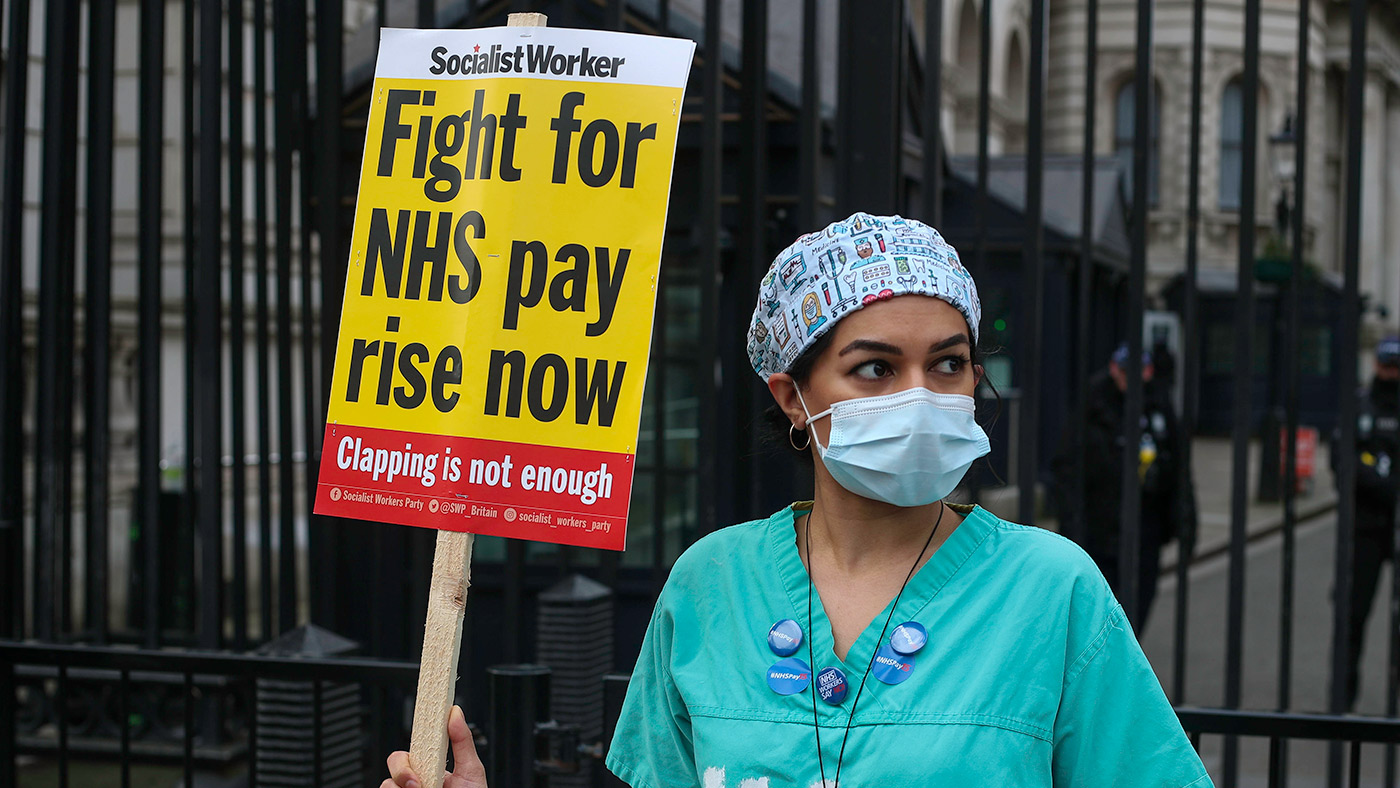Foreign nurses 'face deportation' under tough immigration rules
Royal College of Nurses warns that new government measures will 'cause chaos' and cost the NHS millions

A free daily email with the biggest news stories of the day – and the best features from TheWeek.com
You are now subscribed
Your newsletter sign-up was successful
Thousands of foreign nurses could be deported under strict new immigration rules, the Royal College of Nursing (RCN) has warned.
The measures will mean that non-EU workers who earn less than £35,000 after six years in the UK could be forced to return home.
The rules, due to come into effect in April next year, will compromise patient safety, "cause chaos" in the NHS and result in millions of pounds being "thrown down the drain," the union said.
The Week
Escape your echo chamber. Get the facts behind the news, plus analysis from multiple perspectives.

Sign up for The Week's Free Newsletters
From our morning news briefing to a weekly Good News Newsletter, get the best of The Week delivered directly to your inbox.
From our morning news briefing to a weekly Good News Newsletter, get the best of The Week delivered directly to your inbox.
"The UK will be sending away nurses who have contributed to the health service for six years," said RCN chief executive Dr Peter Carter. "Losing their skills and knowledge and then having to start the cycle again and recruit to replace them is completely illogical."
The new rules form part of the government's key policy to reduce immigration and demand for migrant labour and "ensure that only the brightest and best" immigrants stay in the country permanently.
The RCN warns that more than 6,000 NHS nurses could be affected by the end of the decade, resulting in a waste of £40m when total recruitment costs are taken into account, reports the BBC.
The group is calling on the government to add nursing to the list of occupations that are exempt from the restrictions and to reconsider the income threshold, pointing out that nurses rarely receive such high salaries, especially within the first six years of their careers.
A free daily email with the biggest news stories of the day – and the best features from TheWeek.com
Shadow Home Secretary Yvette Cooper accused the government of delivering "the worst of all worlds," according to The Independent.
"They have not provided enough training places for nurses here in Britain," she said, "and now they want to send away the fully trained nurses who have been working here for many years even though the local NHS want them to stay, and there are no local staff to fill the gap."
Responding to the criticism, the government said there was no evidence of a nursing shortage and that "employers have had since 2011 to prepare for the possibility their non-EEA workers may not meet the required salary threshold to remain in the UK permanently."
-
 Film reviews: ‘Send Help’ and ‘Private Life’
Film reviews: ‘Send Help’ and ‘Private Life’Feature An office doormat is stranded alone with her awful boss and a frazzled therapist turns amateur murder investigator
-
 Movies to watch in February
Movies to watch in Februarythe week recommends Time travelers, multiverse hoppers and an Iraqi parable highlight this month’s offerings during the depths of winter
-
 ICE’s facial scanning is the tip of the surveillance iceberg
ICE’s facial scanning is the tip of the surveillance icebergIN THE SPOTLIGHT Federal troops are increasingly turning to high-tech tracking tools that push the boundaries of personal privacy
-
 Captain Tom charity closes to donations amid daughter’s pool row
Captain Tom charity closes to donations amid daughter’s pool rowSpeed Read Hannah Ingram-Moore to appeal council order to demolish spa complex at her home
-
 The Week Unwrapped: Sex and health, the Earth’s core and another new year
The Week Unwrapped: Sex and health, the Earth’s core and another new yearpodcast Is the NHS failing British women? What’s going on at the centre of our planet? And what’s in a date?
-
 National nursing strike: should the patient ‘always come first’?
National nursing strike: should the patient ‘always come first’?Talking Point Recent YouGov poll found that 65% of public approves of strike action
-
 The science behind lab-grown blood
The science behind lab-grown bloodfeature Development of ‘absolute game changer’ could help those with sickle cell and other conditions
-
 ‘Moving CBBC online isn’t modernisation – it’s dangerous’
‘Moving CBBC online isn’t modernisation – it’s dangerous’Instant Opinion Your digest of analysis from the British and international press
-
 The Week Unwrapped: Quitting China, social age checks and dental deserts
The Week Unwrapped: Quitting China, social age checks and dental desertspodcast Why has AirBnB given up on China? Are social networks finally taking age limits seriously? And why is it so hard to find a dentist?
-
 ‘Negotiation with Putin would be a moral disaster’
‘Negotiation with Putin would be a moral disaster’Instant Opinion Your digest of analysis from the British and international press
-
 The Week Unwrapped: Home-working pay cuts, Taiwan and Cinderella
The Week Unwrapped: Home-working pay cuts, Taiwan and Cinderellapodcast Should people who work from home earn 20% less? Is Taiwan at risk of a Chinese invasion? And what does the failure of Andrew Lloyd Webber’s latest production tell us about post-Covid theatre?